A Brand-new Branding Project for Baskets Made in Botswana
October 2, 2019
A training workshop for a branding project took place on September 17 and 18, 2019 in Kasane (Botswana), bringing together 31 basket weavers from small villages in Chobe District, in the north of the country. The objective was to kick off a project to brand their baskets following in the successful footsteps of WIPO’s Taita Basket branding project.
In September, Kasane (Botswana) hosted a workshop of local basket weavers. They learned about the trademark system and discussed quality standards as well as the grading system they apply to their baskets.
Traditional craftswomanship
In Botswana, much as in Kenya, baskets have traditionally been made by women in rural areas. Basket-making is a livelihood strategy to obtain cash income that contributes towards covering the basic needs of households. The knowledge of basket-making has been passed down from mothers to daughters from generation to generation.
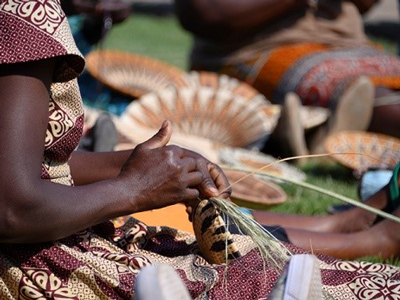
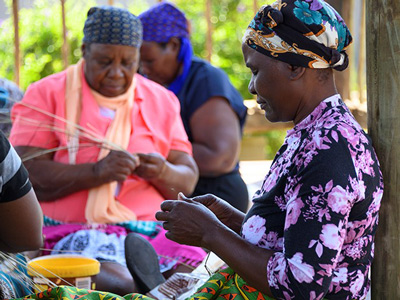
Chobe, the home of this evolving project, is one of two major tourism regions in Botswana together with Ngamiland. The rich wildlife of Chobe, known for its large population of elephants, attracts tourists from around the world. Those tourists are the major buyers of the baskets.

The baskets are made from leaves of young mokola palm trees native to the region. They are adorned with various traditional patterns created by interweaving naturally colored leaves dyed with native plants. Each basket is painstakingly handwoven by trained and skilled hands. The weaving is high quality with a great deal of attention to detail.
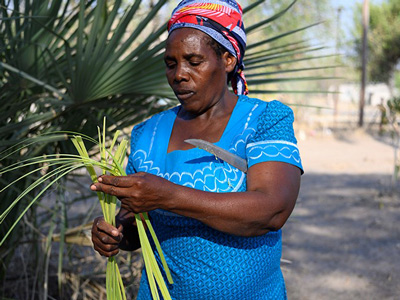
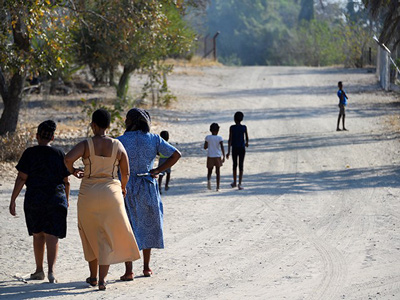
Working together to build a regional brand
The workshop was the first step in a multi-step intellectual property-related branding project focusing on Chobe Baskets. The participants learned about the trademark system and the steps already taken by the Kenyan basket weavers. They intensively discussed logo designs of their collective mark, the quality standards, and the grading system.
In Chobe District, there are three small co-operatives of basket weavers, all working in isolation from one other. They are about to start working together towards the goal of having a collective mark to promote their baskets as a regional brand.
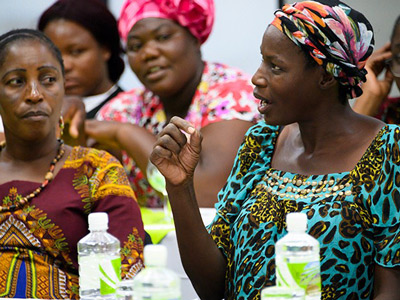
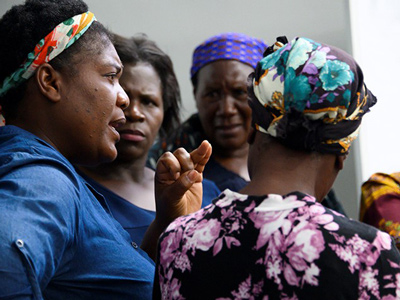
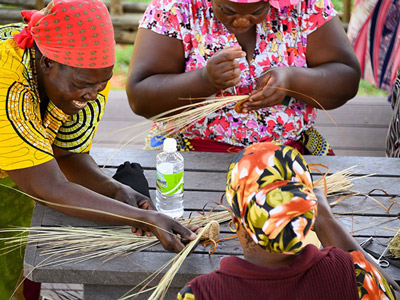
Once you work together as a co-operative, you can learn from each other and make possible stable production in large quantities. Once you have intellectual property assets, you can benefit from them. This can help you reach an international market.
Opening remarks, Mr. Goloswang Ramogala, Chief Cooperative Auditor (Business Development), Department for Cooperative Development, Ministry of Investment, Trade and Industry, Botswana.
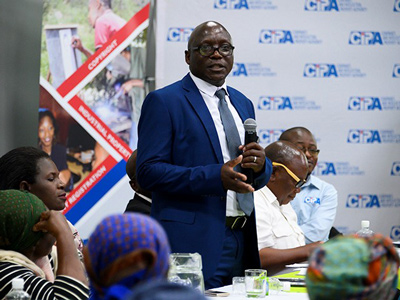
We, Botswana people, tend to work individually. That is a major issue. If we work together, we can achieve a lot. I realized that we need to work together. At CIPA, we protect your IP rights. A collective mark will help you with the marketing and pricing of your baskets. I would like to see customers coming to look not just for a ‘basket’ but a ‘Chobe Basket’.
Opening remarks, Mr. Timothy Moalusi, Registrar Industrial Property, Companies and Intellectual Property Authority, Botswana.
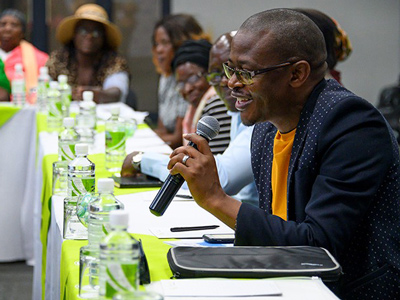
The workshop was organized by WIPO, in cooperation with the Japan Patent Office (JPO), the Companies and Intellectual Property Authority (CIPA), and the Department for Cooperative Development, Ministry of Investment, Trade and Industry.